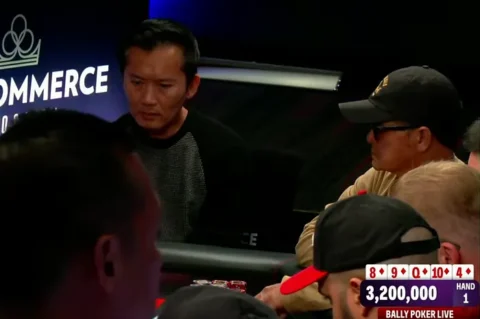For some players, it’s enough to try poker online purely for fun and as something cool to do after a long, hard day at their regular job. Other players, though, have bigger ambitions and aim to work their way up to playing professionally. The chance to earn a living doing something you enjoy is pretty awesome, after all, as is the glamour and potential financial rewards of being a poker pro.
No one can jump straight to playing at this level overnight, though – at least not if they want to stand a real chance of mixing it with the big boys and girls! It’s wise therefore to find out how to start playing poker initially and then work your way into the pro game when truly ready.
But what are the best tips when starting out in the game?

Find a secure site to play
Before we really dig into poker-related specifics, it pays to think about where you will play online. Although all poker sites might look the same, not all are created equal, and it’s essential to only sign up at licensed platforms that use the latest cybersecurity measures to protect users.
It’s also a must to take a look at how many poker variants a site has before signing up, and what kind of tournaments they run. Lots of people like to play poker online via mobile and this means choosing a site that offers a seamless mobile experience is crucial. You should also only play at poker sites that have a range of trusted payment options and customer support that is easy to reach.
As shown at AskGamblers UK, Casumo Casino, Bally Casino and Karamba Casino are all great choices for would-be poker players.
Choose the poker variant that suits you best
One thing that has made poker one of the world’s top casino games is the number of variants there are to try. While Texas Hold ‘Em might be the most familiar, others like Omaha, 2-7 Triple Draw, and stud games are a hit with players.
One tip when starting out is to do some research into how each poker variant works, and figure out which you like best. It can also be useful to play a few informal hands offline with friends to really see what floats your boat.
Doing this means you play a variant you like and that you have a natural feel for. This can help you get more from your sessions and help give you the edge needed to move up to the pro ranks.
Play for low stakes initially
Although you might dream of playing for big pots in high-stakes games, this is not something to try when just learning how to play poker.
It’s a much better idea to stick to low-stakes games to start off with, and tournaments with low buy-ins. Doing this enables you to make all your mistakes without lots of cash being on the line. It also means you can focus on getting used to playing the game and how it all works, rather than worrying about how much you’re playing for.
Work on your weaknesses
To move into the pro game, it’s a must to review how you perform regularly and pinpoint areas you need to improve on. If you notice that your attempts at bluffing rarely come off, for example, you can work on being more convincing in hands, and how to use psychology in your play. Although no player is ever perfect, you should constantly be working on your game.
Know your relative card strength
It’s a given that poker pros know their cards and know how well their hands are likely to fare against their opponents hands. You would not see someone like Phil Ivey or Daniel Negreanu struggling to work out how strong their hand is in a game, for example!
With this in mind, you should aim to master all types of poker strategies as best you can, and know exactly what your relative hand strength is. This not only enables you to make the right choices in games based on how strong you know your hand to be but also enables you to gauge how strong an opponent’s hand might be.
Understand the rules and basic poker terminology
Anyone starting out in poker should get a handle on the rules of the variant they’re playing. This stops you looking foolish and prevents you making poor decisions based on an incorrect understanding of the rules. If you’re playing Texas Hold ‘Em, for example, and sit around waiting for four hole cards as you get in Omaha, then you’re going to look a bit silly.
By the same token, you seriously need to get down with basic terminology. You don’t need to know every little term but common ones like all-in, big blind, ante and raise are essential. This helps you to understand what’s happening in games and is a must when trying to move into pro poker circles.
Play fewer hands but more aggressively
Most people know from looking at current famous poker pros that each has their own unique style. While developing your own is a good idea as you progress, playing fewer hands but in a more aggressive way is something to think about.
Doing this means you avoid overplaying and wasting money staying in hands you should get out of. It’s also better for your confidence levels, as you don’t lose as much! On the other hand, if you have a strong starting hand (such as an ace, ace, king and two in Omaha), then be aggressive and play fast to build the pot. This obviously becomes even truer as things pan out and any community cards that make your hand even stronger are revealed.
Top tips for starting out in poker
It’s always nice to have dreams and goals in life. This extends to playing poker, and aiming to become a pro one day is a solid objective to set. You need to run before you walk, though, and this means finding out the best tips to build up your game when starting out and developing over time to pro level.















